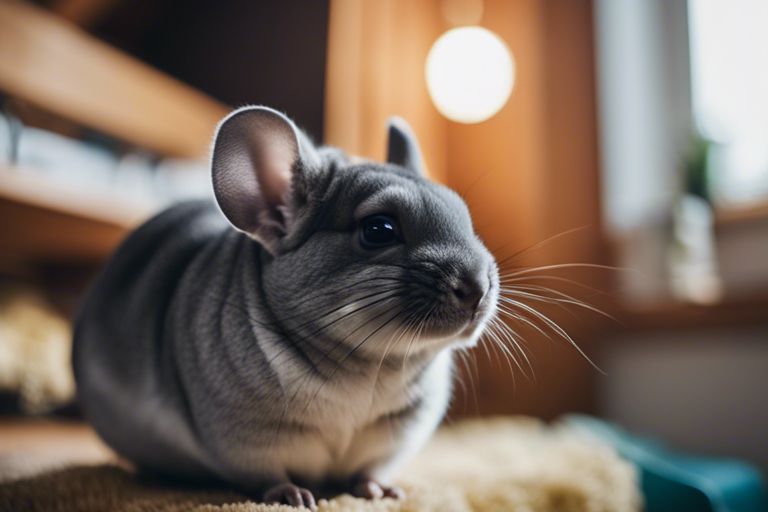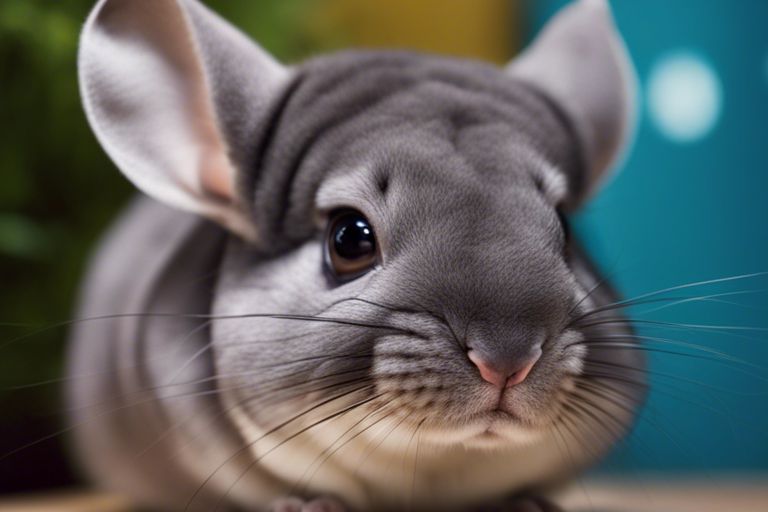Have you ever wondered why your chinchilla makes those high-pitched squeaking noises? Understanding the meaning behind these vocalizations is crucial for the well-being of your furry friend. Chinchillas are not naturally vocal creatures, so when they do make noise, it’s important to pay attention. In this blog post, we will explore the various reasons why your chinchilla may be squeaking, from expressing happiness and contentment to signaling distress or pain. By the end of this article, you’ll have a better understanding of your chinchilla’s squeaks and be better equipped to meet their needs and keep them healthy and happy.
The Language of Chinchillas
Before diving into the world of chinchilla vocalizations, it’s important to understand that these adorable creatures have their own unique language that they use to communicate with each other and their human companions. Just like any other pet, chinchillas use vocalizations to express their emotions, needs, and concerns.
Types of Chinchilla Vocalizations
To understand the types of chinchilla vocalizations, it’s important to pay attention to the sounds that they make. Chinchillas can produce a variety of vocalizations, including chirps, barks, grunts, and squeaks. These vocalizations can indicate everything from contentment to distress. Assume that every vocalization has a specific meaning that can be deciphered with careful observation and understanding.
| Sound | Meaning |
| Chirps | Contentment |
| Barks | Alertness |
| Grunts | Distress |
| Squeaks | Attention-seeking or anxiety |
| Whistling | Pain or discomfort |
Decoding Squeaks
For chinchilla owners, it’s important to pay special attention to squeaks, as this particular vocalization can hold a lot of meaning. Squeaks are often a sign that a chinchilla is feeling anxious, scared, or in need of attention. By closely observing the context in which the squeaks occur, chinchilla owners can gain valuable insight into their chinchilla’s emotional state.
A regular, high-pitched squeak may indicate that the chinchilla is feeling anxious or in need of affection. However, a prolonged, continuous squeak accompanied by other distress signs could be a sign of illness or discomfort. It’s important for chinchilla owners to be aware of these differences and take appropriate action when necessary.
When a Chinchilla Squeaks
The chinchilla is a small, adorable rodent that is known for its soft fur and cute appearance. However, chinchillas also have a unique way of communicating with their owners – through squeaks. These squeaks can convey a variety of emotions and needs, and it’s important for chinchilla owners to understand what their pets are trying to communicate.
Expressing Discomfort or Pain
An important reason for a chinchilla to squeak is to express discomfort or pain. If you hear your chinchilla squeaking in a high-pitched, repetitive manner, it could be a sign that they are in distress. This could be caused by an injury, illness, or even something as simple as a piece of hay stuck in their fur.
Signaling Fear or Alarm
With their keen senses, chinchillas are easily startled and can signal fear or alarm through their squeaks. If your chinchilla emits short, sharp squeaks, it may be a sign that they are feeling threatened or anxious. This could be due to sudden movements, loud noises, or the presence of unfamiliar people or animals.
Fear and anxiety can lead to stress-related health issues for chinchillas, so it’s important to address any potential sources of fear in their environment.
Indicating Social Interaction Needs
Pain chinchillas also use their squeaks to indicate their need for social interaction. If your chinchilla emits soft, trilling squeaks, it could be a sign that they are seeking attention and companionship. Chinchillas are social animals and can become lonely if left alone for long periods of time.
The social needs of chinchillas are important to address in order to ensure their emotional well-being and overall happiness.
Showing Contentment and Happiness
Indicating pleasure and satisfaction, chinchillas may use their squeaks to show contentment and happiness. If your chinchilla emits low, purring squeaks, it’s a sign that they are feeling comfortable and at ease in their environment. This is a positive indicator of their overall well-being and happiness.
A happy and content chinchilla is more likely to be healthy and active, making it important to provide them with a stimulating and enriching environment for their well-being.
Responding to Chinchilla Squeaks
Now that you’ve heard your chinchillas squeaking, it’s important to know how to respond appropriately. Chinchillas communicate through a range of vocalizations, and understanding their squeaks can help you address their needs effectively.
Assessing the Situation
Responding to your chinchillas’ squeaks begins with assessing the situation. Pay attention to the frequency and intensity of the squeaks, as this can indicate distress or discomfort. Sudden, high-pitched squeaks may signal pain or fear, while softer, repetitive squeaks could be a sign of boredom or loneliness.
How to Comfort a Squeaking Chinchilla
Responding to your chinchillas’ squeaks also involves knowing how to comfort them. Providing a safe and comfortable environment is essential to address their needs. Spend time with them, offer gentle pets and interact with them to alleviate any stress or anxiety they may be experiencing. With proper attention and care, you can ensure that your chinchillas feel secure and content in their surroundings.
Preventing Unnecessary Squeaks
Keep your chinchillas happy and healthy by implementing a few simple measures to prevent unnecessary squeaks. By creating a stress-free environment and prioritizing regular health check-ups and proper care, you can help minimize the chances of your chinchillas squeaking excessively.
Creating a Stress-Free Environment
Unnecessary squeaks from your chinchillas can often be attributed to a stressful environment. Ensure that their living space is spacious and well-equipped with plenty of toys and hiding spots. Avoid sudden loud noises and frequent disruptions to minimize stress levels in your chinchillas, and maintain a consistent routine for feeding and handling.
Regular Health Check-Ups and Proper Care
Unnecessary squeaks may also be a sign of underlying health issues. Regular health check-ups by a qualified veterinarian can help identify any potential health concerns before they escalate. Additionally, providing a balanced diet, clean bedding, and access to fresh water are essential components of proper chinchilla care to prevent unnecessary squeaks.
Creating a stress-free environment and prioritizing regular health check-ups and proper care for your chinchillas is crucial in preventing unnecessary squeaks and ensuring their overall well-being.

Conclusion
Ultimately, when your chinchilla squeaks, it can indicate a variety of emotions or needs. It may be feeling stressed, anxious, or in pain, and it could be seeking attention or expressing contentment. As a responsible chinchilla owner, it’s important to pay close attention to the context of the squeaks and the accompanying body language to better understand what your pet may be trying to communicate. By being attentive and responsive to your chinchilla’s vocalizations, you can ensure its well-being and strengthen the bond between you and your furry companion.
